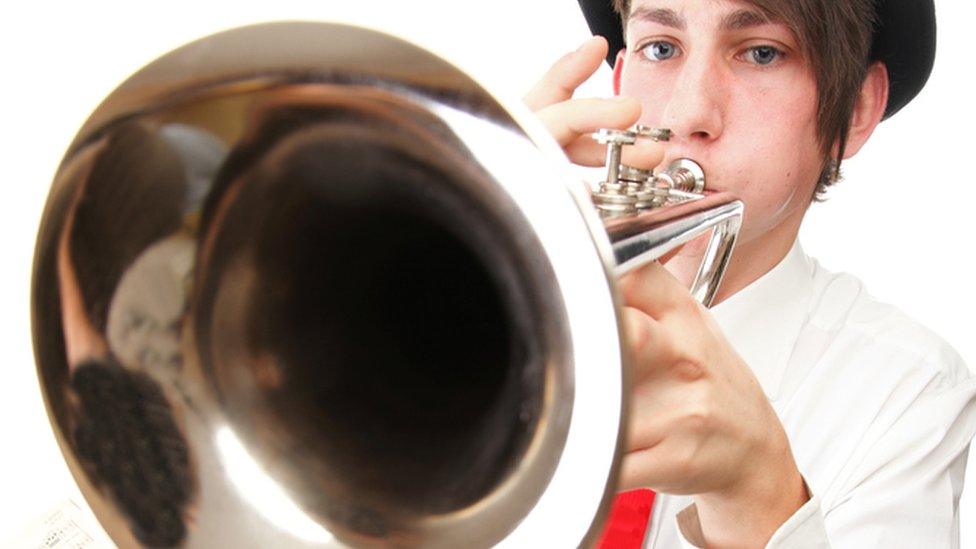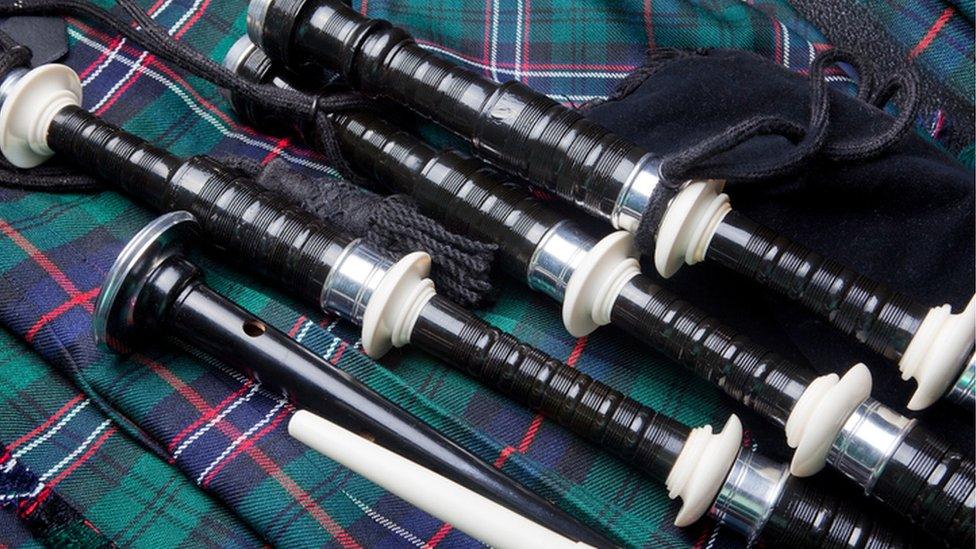'Bagpipe lung' warning for wind musicians
- Published

Trumpeters, saxophonists and pipers beware - playing a wind instrument could damage your lungs, UK doctors warn in the journal Thorax., external
They describe a rare but fatal case of what they are now calling "bagpipe lung" in a 61-year-old patient.
The deceased man is thought to have developed a bad reaction to mould and fungi lurking inside the moist interior of his bagpipes.
Doctors are urging other musicians to be extra hygienic.
They say instruments should be cleaned regularly to prevent the build-up of yeast and other harmful pathogens.

And any player who gets breathless and develops a cough should consider whether their symptoms might be caused by their music practice.
There have been a couple of other documented reports of similar lung problems in saxophone and trombone players.
Thankfully, in these cases the cause was identified early and the patients recovered.
Irreversible scarring
The lung damage the doctors describe happens when the body's immune system goes into overdrive.
The inhaled pathogens trigger inflammation and left unchecked, this causes progressive and irreversible scarring.
Doctors at the Wythenshawe Hospital said they had a hunch that the man's bagpipes might be the cause of his problems.
The man was a keen piper, practising his music every day.

He had been unwell for a number of years, with the exception of a few months when he travelled abroad and left his bagpipes at home.
The doctors sent his bagpipes to the laboratory to check if their hunch was right.
When the lab report came back it revealed that the instrument was riddled with damp-loving mould and fungi - the types that doctors know can cause lung problems.
The damage that had already occurred to the man's lungs was irreversible. His condition deteriorated and he died some weeks later.
Dr Jenny King, a member of the Wythenshawe team who had treated the man, said: "Sadly, in his case, the damage was fatal.
"If you can diagnose these problems early and remove the trigger then they can be treated and the prognosis is really good.
"These organisms are around in the air, but they're not usually at a high enough level to cause problems. You do sometimes see this type of lung problem in people who work on farms and are exposed to lots of mouldy hay."
Andrew Bova works at the National Piping Centre in Glasgow and is an accomplished bagpiper.
He advised: "Certainly, when it comes to cleaning a woodwind instrument I would say give it a swab after every time you play.
"The moisture can sit in the nooks and crannies and you don't want that. Moisture can damage the wood so we swab to protect the instrument as much as anything."
He uses brushes to clean his and says he gives the blowpipe a thorough rinse out with hot water every six months to get rid of any problems.
"If you have a sheepskin bag, I was told that I should wash it out with hot water and bleach every year. That should get all the germs killed and prolong the life of your instrument.
"Of course, most people today tend to play synthetic bags. I tell my players that they can unzip those to let the bag dry out."
Kevin Lamb, chairman of the Windband Association, said all instruments were cleanable.
- Published17 February 2016

- Published5 July 2016
